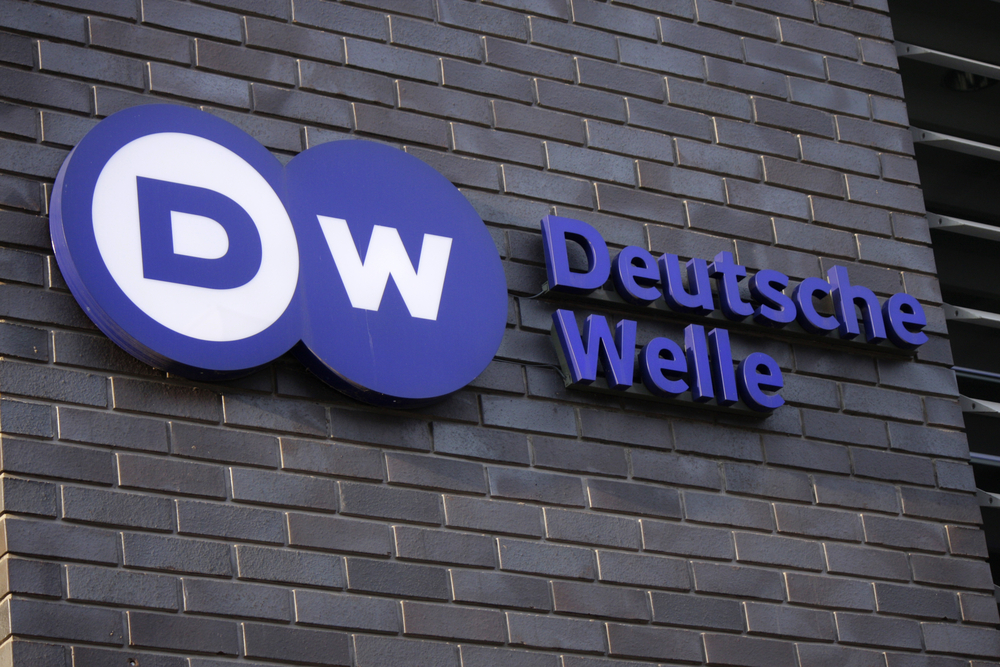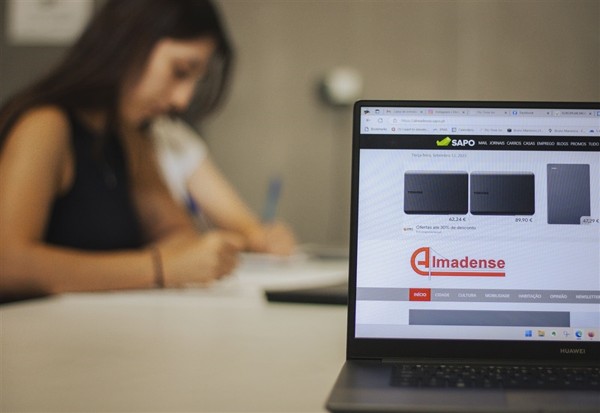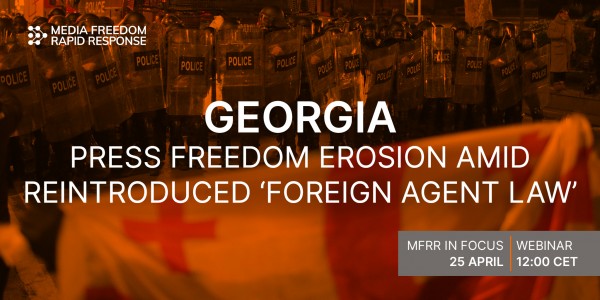Russia will close all functions of the German broadcaster Deutsche Welle in Russia. IPI strongly condemns Russia’s decision as a severe and unjustified attack on media freedom.
On February 3, Russia announced it will shut down the office of German international public broadcaster Deutsche Welle (DW). The staff of DW will lose their accreditation to work in Russia. The Russian foreign ministry also stated that Deutsche Welle’s satellite broadcasting in the country would be terminated. Russia will also initiate a procedure to consider whether to classify Deutsche Welle as a “foreign agent”.
Russia has framed the move as a response to the recent decision by German regulators to bar the transmission of Russian state broadcaster Russia Today’s German-language service (RT DE). According to the German Commission on Licensing and Supervision (ZAK), RT DE did not have authorization to broadcast in Germany. ZAK said that it had not received or approved a license application for RT DE.
RT DE started broadcasting in Germany in December 2021. The channel said it had a Serbian cable and satellite license that would allow it to broadcast in Germany. RT has said it will challenge the decision of ZAK, which said the channel requires a license that adheres to Germany’s State Media Treaty. The license cannot be replaced with another one, the regulator added.
As part of its retaliation, Russia is also compiling a list of German representatives and public persons involved in the closing of RT DE. Those persons will be denied entry to the Russian Federation. Russia will not publish the names on the list.
“Russia’s decision to force Deutsche Welle and its staff out of the country is a grave and unjustified attack on media freedom”, IPI Executive Director Barbara Trionfi said. “While the decision by German regulators to take Russia Today’s German-language service off air on licensing grounds should be subject to scrutiny – as should all decisions affecting broadcasting freedom – Russia’s closure of Deutsche Welle is manifestly arbitrary, disproportionate, and punitive. Media should not be used as pawns in political disputes.
“Russia Today can and should challenge the decision of German regulators in court, and authorities in Germany must ensure that media freedom guarantees are applied equally. But that dispute should have no bearing on Deutsche Welle’s operations and ability to conduct its independent journalism in Russia. Such ‘score-settling’ is a disservice to the Russian and international public at a time when cross-border information and news reporting is more important than ever.
“Unlike in Germany, Russia’s actions are also consistent with a pattern of escalating attacks on independent media, both Russian and foreign. These attacks – including arrests, raids, expulsions of journalists, and the labelling of media as ‘foreign agents’ – are designed to suppress critical news and opinion in Russia. Russian authorities should end their crackdown on press freedom at home.”
Karola Wille, chair of IPI’s German National Committee, also condemned the move. “I am greatly concerned by the news out of Russia. Freedom of media and information are important rights that must be protected worldwide. Only by being fully informed can people form well-grounded opinions. By revoking Deutsche Welle’s license, Russia is taking away from its citizens an independent source of information and thereby violating the fundamental right to information. It is completely unacceptable to make independent reporting a pawn of political interests.”
The chair of IPI’s German National Committee, Karola Wille, condemns Russia’s closure of @DeutscheWelle. “Completely unacceptable” to make independent media the pawn of political interests. @dw_freedom @dw_Limbourg https://t.co/n4MGFA6JOj
— IPI-The Global Network for Independent Journalism (@globalfreemedia) February 4, 2022
The decision by Russia comes amid a highly tense political atmosphere. In January, during a meeting with Foreign Minister Germany Annalena Baerbock, her Russian counterpart, Sergey Lavrov, warned against banning RT DE and said it would have consequences.
In September 2021, YouTube closed RT’s German channel over allegations that it was spreading misinformation related to COVID-19. YouTube had previously warned RT not to violate its guidelines and standards. After the decision, the editor-in-chief of RT, Margarita Simonyan, said on the messaging app Telegram that Germany was inciting a media war on Russia. German government then-spokesperson Steffen Seibert told reporters that Germany had nothing to do with the decision as it was made by YouTube.
Russia’s repression on media continues
Nobel Peace Prize winner Dmitry Muratov told Reuters in December 2021 that press freedom in Russia is going through hard times. Scores of journalists and media outlets have been labelled as foreign agents.
Foreign media operating in Russia also face increased restrictions. In November 2021, Dutch journalist Tom Vennik was expelled from Russia. He was working for Dutch newspaper De Volkskrant. He will not be able to return to Russia until 2025.
In August 2021, BBC Moscow correspondent Sarah Rainsford was forced to leave Russia when her visa was not renewed. She had worked in Russia for 20 years.



